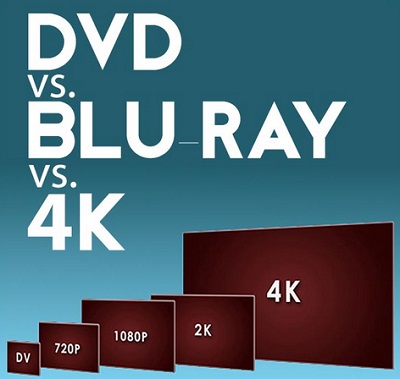Net Neutrality:
"The principle that Internet service providers should enable access to all content and applications regardless of the source, and without favoring or blocking particular products or websites."
So in other words, it removes any and all motivation for content providers to make deals with, and install high speed lines to, ISPs in order that their content would be delivered at an acceptable rate to their consumers for an acceptable consumer experience, as there's no way within these rules to have it make financial sense (imagine that, government doesn't have a clue about making financial sense. Sounds like government SOP to me).
Yeah, this really sounds like a step backwards to me.
Bandwidth is the blood and the heart of the Internet. Content and consumers demand it. The richer the content, the more bandwidth it demands, this is why HD movies with surround sound look and sound better than a VHS tape. It also demands far more storage and bandwidth.
4K TVs are already in the stores, and 4K Blue Ray DVDs are too. If the pattern repeats itself, and it likely will, the next demand will be for NetFlix and the ISPs to deliver this huge increase.
Without financial motivation to build out the required network infrastructure to support the new holographic movies and VR technologies, you'll never gona get them, and if you do, it'll be hamstrung. It'll kill innovation and investment in forward progress and further development.
Nobody likes these rules. This going to be just like obamacare...
Net Neutrality: Why Net Neutrality Isn't Worth Celebrating
Per the article above:
The new net neutrality regulations give the FCC some oversight over these agreements to determine if they’re “just and reasonable,” but that standard is so vague as to make an already complicated issue
difficult to enforce. In Chairman Wheeler’s
proposal, broadband providers are allowed to pretty much do whatever they want as long as they defend their actions as “reasonable network management,” which, as The Verge
points out, is “a term which the ISPs have already been using to justify congestion at interconnection points.”
A couple of points here:
"standard is so vague as to make an already complicated issue
difficult to enforce" - Typical of legislators and regulators that are trying to regulate and legislate something they don't have enough knowledge about.
“reasonable network management,” - could be anything, nearly any action the ISP wants to take, and justify with a barely logical and / or barely technically accurate that the regulator hearing the BS couldn't discern between fact or fiction. Squidgy rules that can be bent, twisted, contorted, and disagreements likely to end up in the courts. Boy does this sound like typical government busy bodyness yet?
Yeah...that's what I thought. You people have no idea what these new rules are going to do.
Given the vagueness of the regulations, as cited above, I don't think that anyone can predict how this is going to turn out, but my bet is on 'not well' or 'worse than if it had been left alone', which is the typical result when government sticks it's nose in most anything, and that most certainly IS the established track record.
Government, the Midas touch that turns everything to lead.

